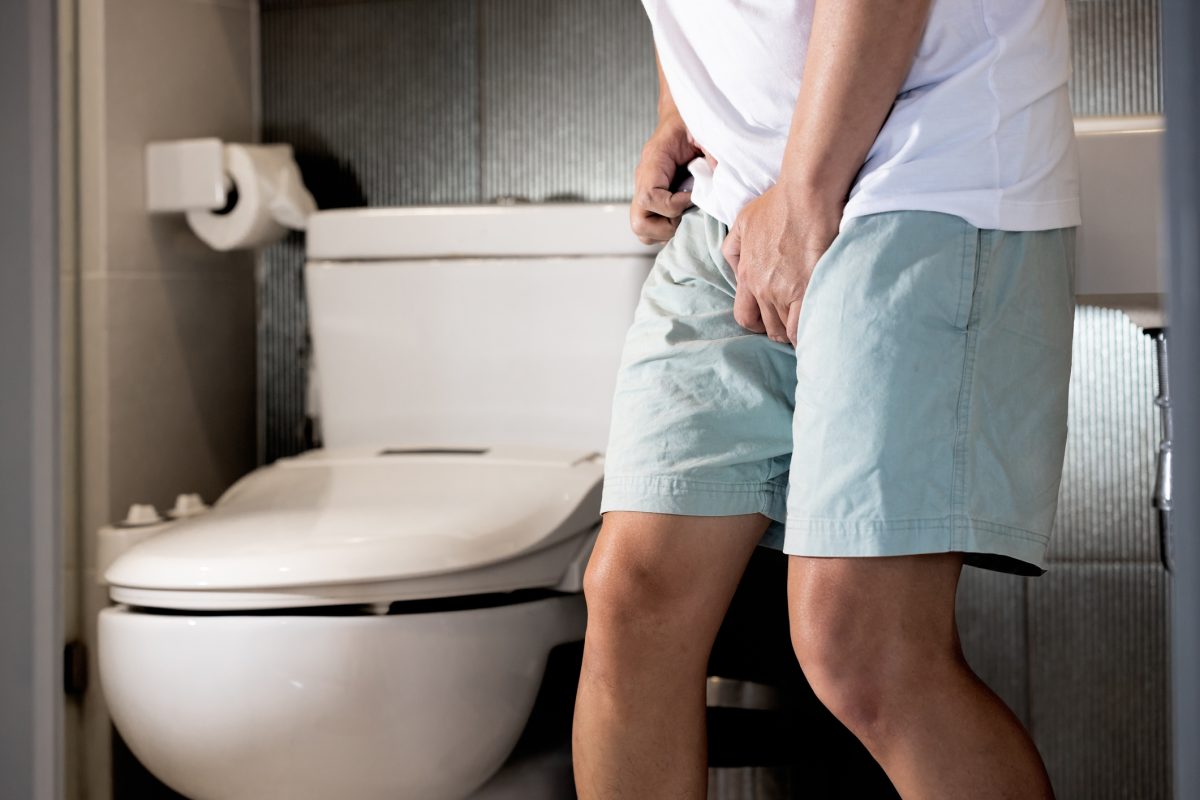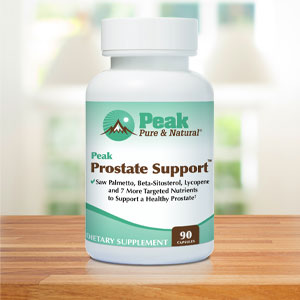If you open a magazine in a waiting room, you’d think only women face urinary problems.
But a growing problem men face as they age has them feeling the urgency (and more), too.
The good news is that understanding these age-related prostate issues can help men find relief…
A ‘growing’ problem
The prostate gland is located at the base of the bladder and is usually about the size of a walnut (about 4.8 grams in weight).
However, for reasons doctors still don’t understand, when men hit their 30s, the gland hits a second growth spurt. By the time a man is in his 70s, the gland is a whopping 40 grams on average — nearly 10 times its normal weight.
This growth puts pressure on the urethra, the tube that carries urine from the bladder through the penis and out of the body, which is why many men experience urinary changes as they age.
Other issues can spur the growth of the prostate, worsening urinary symptoms. These include inflammation, which is also known as benign prostatitis and benign prostatic hyperplasia (BPH), also known as enlarged prostate, which is a blockage of the tubes due to non-cancerous enlargement of the prostate.
Symptoms that point to prostate and urinary trouble
Numerous urinary symptoms can result from an enlarged prostate that are not only troubling but negatively impact a man’s quality of life, including:
- Trouble beginning to urinate
- Lack of force in urination (making it difficult to direct the urine stream)
- Dribbling after urination
- Feeling like you haven’t fully emptied your bladder
- Needing to urinate frequently (both during the day and at night)
- Urinary urgency (this can include urgency so sudden you can’t make it to the toilet in time)
- Feeling like you have to go soon after urinating
It’s also important to note that because an enlarged prostate can cause urine to collect in the bladder, it can increase your risk of urinary, bladder and kidney infections.
Always see your doctor right away if you have issues like blood in the urine, pain on urination, or are unable to urinate or control the urine flow.
Supporting prostate health
Luckily, an enlarged prostate gland doesn’t always cause urinary problems. And even if you have troublesome urinary symptoms, they’re rarely a sign of something serious. Of course, you should always let your doctor know about any problems you experience or changes, just to be sure.
However, although these symptoms often don’t require medical treatment, there’s no reason a man should silently suffer and stop doing the things he enjoys for fear of a bladder leak.
Over time, several natural remedies for prostate and urinary support have proven their worth and are available as individual supplements and in special formulations. Those always at the top of the list include:
- Saw Palmetto appears to reduce levels of dihydrotestosterone (DHT), a hormone which, at elevated levels, causes the prostate to become enlarged.
- Beta-Sitosterol. Studies show that beta-sitosterol can help improve urinary flow rates, reducing the amount of urine left in the bladder after urination and improving overall quality of life.
- Lycopene is a prostate-reducing compound found in tomatoes and is considered the “ultimate male antioxidant” to help combat free radicals that can cause cell damage.
- Selenium is an essential mineral for encouraging the natural death of old, damaged cells.
- Red Clover Extract. Isoflavones from red clover may inhibit smooth muscle contractions in the prostate, which could be beneficial in BPH treatment and help relieve unwanted prostate symptoms.
- Pygeum Bark Extract. Although pygeum has been studied for a variety of ailments, it has demonstrated the most promise for the management of an enlarged prostate, including calming the frequent urge to go.
- Pumpkin Seed. Double-blind scientific studies have shown that pumpkin seed extract helps urinary flow, voiding time, and reduces leftover urine volume in men with prostate concerns.
- Nettle Leaf Extract. Several studies have found stinging nettle root to be effective at promoting normal prostate size and relieving the urinary symptoms associated with an enlarged and aging prostate.
- Zinc. The prostate gland contains a high concentration of this mineral, and nature didn’t put it there for nothing. It has an impact on testosterone levels, which are important to maintain as you age.
- D-mannose can prevent certain bacteria from sticking to the walls of the urinary tract. It’s been shown to be more effective than antibiotics at getting rid of recurrent urinary tract infections.
Sources:
Prostate gland and urinary problems – Better Health Channel
Walnut Weights & Calories (Including Calculator & Charts) – Weight School
Read full article here




